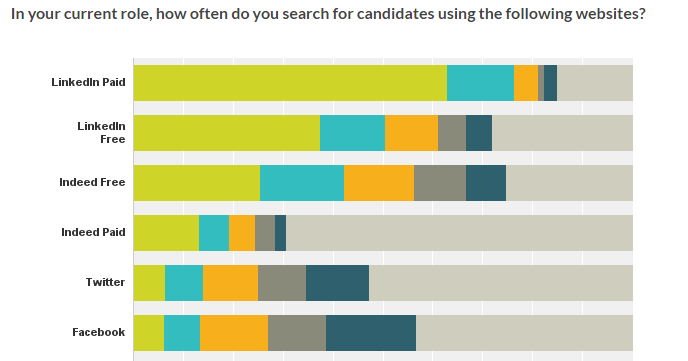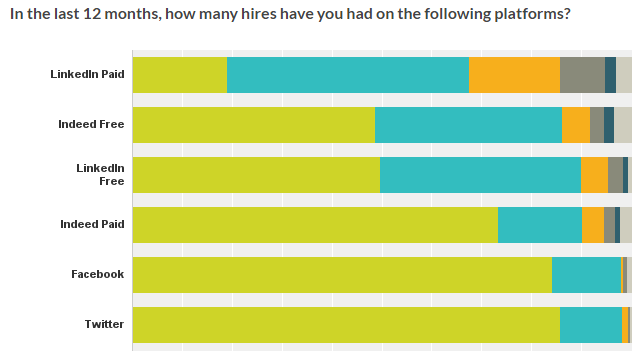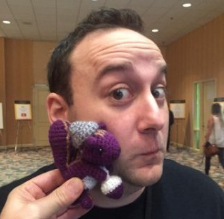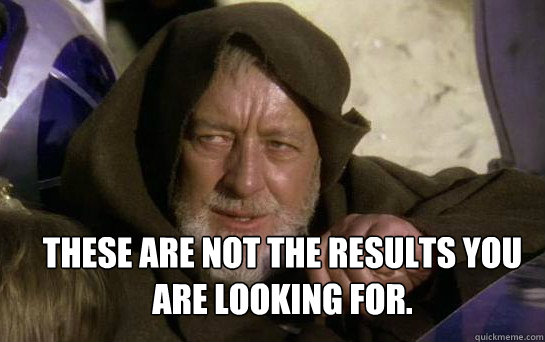By Mike Wolford
We have all seen the numbers. Facebook has nearly two billion unique monthly visitors. There were over 200 billion tweets in 2016. Six-hundred million people use Instagram a monthly basis. Let us not forget Snap Chat, YouTube or Twitter. The sourcer in you can’t help but be entranced by such large databases full of people that you may not be able to find on LinkedIn, or CareerBuilder, or even with the most advanced Boolean search string on Google! So well intentioned we begin to explore the depths of the social media with the mindset that we are looking at an untapped resume database. The statistics from SourceCon’s 2016 state of sourcing survey are telling.

![]()
![]()
So about 50 percent of recruiters and sourcers are using Twitter and Facebook to recruit, but this begs the question, what type of results are they seeing from their efforts.


Over 80 percent of recruiters reported ZERO hires in the last 12 months from Facebook or Twitter, the giants of “Social Media Recruiting.” So why do we invest so much into a source that gives us nothing in return? Why do we read so many articles about social media recruiting, and why do we list that we use Facebook and Twitter to recruit on our own resumes? What is the problem, and where is the disconnect?
 I don’t believe there is any one answer, but I will try to explain where I see people fall down in my role as a Sourcing Manager. The first reason is we don’t know how to search them properly. It is easy to understand why. Facebook and Twitter were co-opted by recruiters, but not specifically created for recruiters. Twitter does not organize profiles by job title. Many Twitter profiles have no career information at all. The same is true of Facebook.
I don’t believe there is any one answer, but I will try to explain where I see people fall down in my role as a Sourcing Manager. The first reason is we don’t know how to search them properly. It is easy to understand why. Facebook and Twitter were co-opted by recruiters, but not specifically created for recruiters. Twitter does not organize profiles by job title. Many Twitter profiles have no career information at all. The same is true of Facebook.
I believe the first reason we fail on our searches on Twitter and Facebook is we think of them as just another candidate database. The problem is, they aren’t candidate databases, and few people include information about their professional life. So how can you find someone who doesn’t mention what they do?
But now let’s consider them individually. First Twitter, then Facebook. The first thing you need to learn if you intend to recruit using Twitter is to understand how to search Twitter. I won’t dive into it here, but I will refer you to a great article by Glen Cathey that explains how to search Twitter for active candidates.
Here is how I would approach hiring people using Twitter. First, it is my opinion that Twitter is much better suited for employer branding than it is recruiting. For example, An employer branding Twitter account is capable of continuity that a recruiter’s Twitter is simply not capable of. A company can deploy a long term strategy to use Twitter for employer branding, but for a recruiter, it is often the immediacy of the role that drives the activity. So consistency and content in the message are important to build and engage and audience to be truly effective. There is an old saying that applies here, “if you only have a hammer, then everything looks like a nail.” Now if you want to use Twitter as a source then there is something besides learning how to search it that you need to do.
That leads me to the second, and to me the most important, the reason you don’t have hires from Twitter. It is simple. You don’t participate in that community on a regular basis. Look at your Twitter. Do you have your picture, or is there an egg staring back at you? Does your profile contain any nonprofessional information about you? What about your tweets? Do you have 20 tweets in a row that are nothing more than links to job postings? Do you tweet about anything besides recruiting?
Would someone who didn’t know you be able to tell that your Twitter was run by something other than an automated job posting service?
Next how many followers do you have? Followers provide credibility when someone who doesn’t know you views your profile. If you want to build a following I suggest using Hootsuite. It can manage your Twitter for you, it can automate some of your tweets and keep you informed about topics that you find interesting. There is a free and paid version so it is sure to fit within any budget. Automating some of your tweets will help you be more constant and consistency is the way to build a following. If thousands of people are following you it lends you credibility. Also, is what you are tweeting impactful? To engage the candidate you should provide consent that speaks to the impact they can make, or how it can impact them. So, ask yourself an honest question. Would I respond to a tweet from my own profile? If the answer is no, then you know why you don’t succeed with Twitter. That doesn’t mean you can’t succeed, but it means that unless you change your ways, you will not be able to tap Twitter successfully as a source of candidates.
Now let us consider Facebook. Again, there is probably a skills gap here. So the first thing I recommend is using a tool designed to search Facebook. About a year ago one of our Hudson partners, Social Talent, launched a tool that will help you search Facebook, and the best part is its free! I’ve included the link here. This tool will help, but to me, the core issue isn’t the tool, it is the method.
Are you part of any groups on Facebook where the people you want to hire talk about their work? Do you share information or thoughts with that community that they might find useful, interesting or even funny?
Now I know that in the minds of many of you reading there is a line between your personal life and your professional one, and Facebook feels decidedly personal. When it comes time to connect and send a message over messenger, do you hesitate? If in your mind you believe by contacting someone on Facebook you are crossing that line, then maybe social recruiting isn’t for you. Truth be told this is the thing, “There is no spoon, Neo.” In other words, the line you imagine in your head isn’t a physical reality, what we do is a part of who we are. Twitter and Facebook exist on the internet and by very definition are public. The fact that Facebook and Twitter allow you to contact and try to connect with people you don’t know is, in fact, the reason they exist and succeed as social networks!
Consider this, you are a professional recruiter trying to find candidates on Facebook, but you refuse to message them on the platform. To quote  Archer, “this is like O. Henry and Alanis Morissette had a baby and named it this exact situation.”
Archer, “this is like O. Henry and Alanis Morissette had a baby and named it this exact situation.”
I believe the problem goes even deeper than just feeling like you are crossing a line. I think deep down you don’t totally believe in the good you could be doing. You aren’t confident enough in your message and the value you can offer someone in order to put your personal reputation on the line. If a credible person told you they would give a million dollars to you and another person under the condition that the second person is a complete stranger that you met on Facebook, I doubt you would see a line at all.
You aren’t confident enough in your message and the value you can offer someone in order to put your personal reputation on the line.
It is difficult to put your personal reputation on the line for something you do not totally believe in. So ask yourself, do you really believe in the value of the work you are doing? Or, maybe it is the value in the role you are recruiting for? It is my opinion that we get so caught up in the day-to-day operations of what we do that we forget about the value that we can bring into a total stranger’s life. They say opportunity only knocks once. When you contact someone with a potential job that could literally change the course of their career and by extension their life, in that instant your name becomes an opportunity. Is that something you believe? In numerous surveys between 80 to 90 percent of people said they would be open to hearing about a career opportunity that was relevant. There is a tremendous opportunity for those that understand the power of that statement.
Like any good recruiting article, I end with a Star Wars analogy. In the movie, The Empire Strikes Back, the hero, Jedi in training, Luke Skywalker has his x-wing space ship sink into the deep mud of a swampy lake. Instead of getting a crane, his instructor Yoda tells him to use the Force. (The mystical power that binds the universe together, according to the film)
Using the Force, Luke fails to lift his ship from the mud. Seeing that Luke feels the task is impossible, the Jedi Master Yoda creates a wonderful teaching moment. Demonstrating the power of the Force, Yoda lifts the space ship from the mud and puts it back onto solid ground.
Upon seeing Yoda use the power of the Force to lift a sunken ship into the air and place it again on solid ground, a bewildered Luke says, “I… I don’t believe it.” Luke did not know the power of the Force just like you do not know the power of being social. Twitter, Facebook, and other social media platforms are not resume databases. If you are not being genuine, consistent and social while recruiting from social media, I will tell you the same thing that Yoda tells Luke:

 Mike Wolford has over 10 years of recruiting experience in a staffing agency, contract and in-house corporate environments. He has worked with such companies as Allstate, Capital One, and National Public Radio. Mike also published a book titled “Becoming the Silver Bullet: Recruiting Strategies for connecting with Top Talent” and “How to Find and Land your Dream Job: Insider tips from a Recruiter.” He also founded Recruit Tampa, and currently serves as the Sourcing Manager at Hudson RPO. An active member of the Recruiting community, Mike has spoken publicly in an effort to help elevate the level of professional skill in the industry. Follow Mike on Twitter @Mike1178 or connect with him on LinkedIn.
Mike Wolford has over 10 years of recruiting experience in a staffing agency, contract and in-house corporate environments. He has worked with such companies as Allstate, Capital One, and National Public Radio. Mike also published a book titled “Becoming the Silver Bullet: Recruiting Strategies for connecting with Top Talent” and “How to Find and Land your Dream Job: Insider tips from a Recruiter.” He also founded Recruit Tampa, and currently serves as the Sourcing Manager at Hudson RPO. An active member of the Recruiting community, Mike has spoken publicly in an effort to help elevate the level of professional skill in the industry. Follow Mike on Twitter @Mike1178 or connect with him on LinkedIn.
By Mike Wolford
As the Talent Intelligence Titan with over 15 years of progressive experience, I've dedicated my career to revolutionizing the talent acquisition landscape. My journey, marked by leadership roles at esteemed organizations like Claro Analytics and Twitter, has equipped me with a deep understanding of recruiting, sourcing, and analytics. I've seamlessly integrated advanced AI technologies into talent acquisition, positioning myself at the vanguard of recruitment innovation.
Recruit Smarter
Weekly news and industry insights delivered straight to your inbox.





